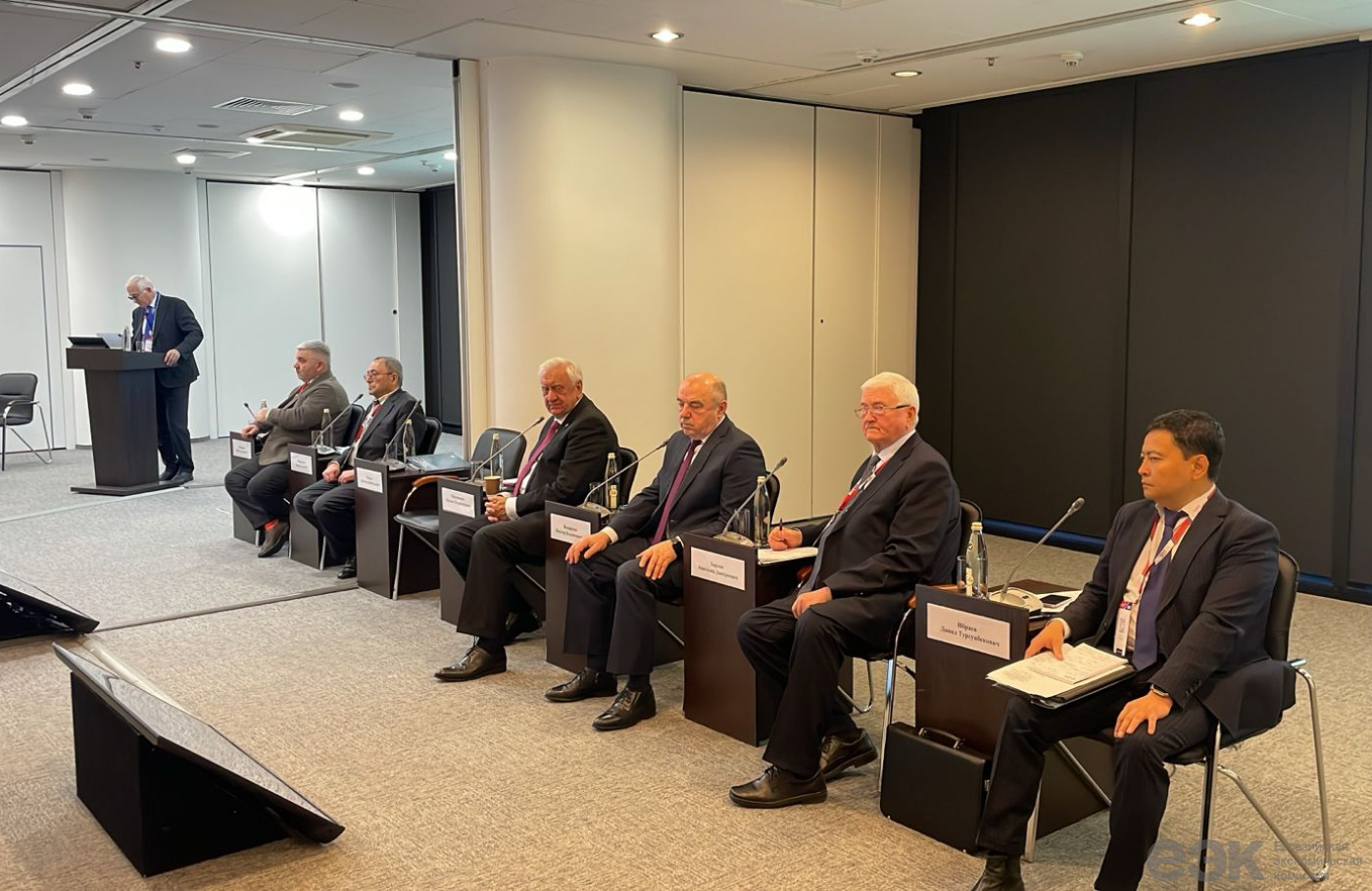News
Mikhail Myasnikovich urged businesses to take advantage of the program for financing cooperative projects in manufacturing industry
Issues of financial support in the implementation of joint industrial cooperation projects and cooperation of the Eurasian Economic Union with its partners from third countries were discussed by the participants of the eighth meeting of the Advisory Council for Interaction Between the Eurasian Economic Commission and the EAEU Business Council, which was held in St. Petersburg on November 28.
Mikhail Myasnikovich, Chairman of the Board of the Eurasian Economic Commission, noted that the share of the EAEU in the global economy was not growing enough, and that was due to the low rate of investment activity.
“Over the 8 years of the EAEU existence, GDP per capita at purchasing power parity increased from 22,800 to 33,600 US dollars, or almost one and a half times. For comparison, the global average GDP per capita was 20,600 US dollars last year. It seems good, but the Union’s share in the global economy did not demonstrate a significant growth. In my opinion, the main reason is that the rate of investment activity is insufficient,” said the Chairman of the EEC Board.He added that the leaders of the EAEU States had set the task of doubling the amount of investment, and that could not be done without the help of business. Mikhail Myasnikovich emphasized that as early as next year it was planned to allocate about 20 million US dollars from the Union budget to support cooperation projects and called on the business community to involve more actively in project activities, especially in high-tech areas.
The Head of the EEC Board pointed out to the fact that business was sent a good message for future work – by the end of the year, it is expected to approve the Declaration on EAEU Development until 2030 and for the period until 2045. “This is a very specific document that eliminates the issues of mutual trust deficit. Therefore, I think those non-tariff restrictions that are introduced in mutual trade will be minimized.”
In addition, he recalled that the EEC Business Development Department operates as a single window for interaction between the Commission and the EAEU Business Council. This year, it has considered and addressed 75 problematic issues raised by the business community.
The meeting participants also discussed the prospects for expanding cooperation with partners from third countries and specifically focused on interaction with Uzbekistan and African countries.
Following the discussion, it was decided to develop a joint action plan of the EAEU Business Council and the relevant EEC structural subdivisions to further enhance practical cooperation between Eurasian businesses and their partners from third countries.






